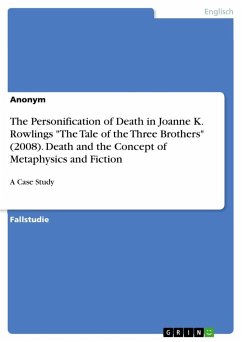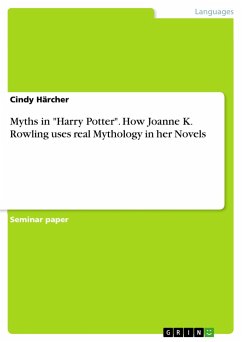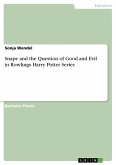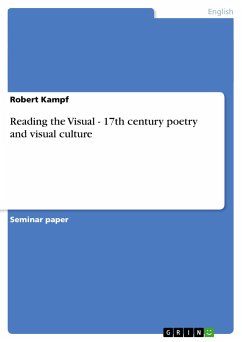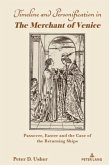Akademische Arbeit aus dem Jahr 2020 im Fachbereich Anglistik - Literatur, , Sprache: Deutsch, Abstract: This dissertation treats the thematic conception of the Personification of Death in "The Tale of the Three Brothers" written by the British author Joanne K. Rowling. As a Tale destined to be read by children, the concept of "death" is not easy to explain for children; this is why Rowling personifies "death" in a male figure not only for the sake of personifying it but also to give it a positive image. Different from some Children's Literature which presents "Death" in a frightening and horrifying image, Rowling presents a new "beautiful" image explicitly for children and implicitly for adults. To give more significance to the personification of death, I have resorted to Karl S. Guthke's book "The Gender of Death: A Cultural History in Art and Literature" (1999) whose main argument is not only about Death as a male figure in literature but also about the positive role that Death can play in life. Guthke prefers the personification of death through creativity and imagination which can be found in literature mainly, over considering death a shapeless idea. In this context, the image of Death is revised far from the grim, bleak, and fearful image children, and adults alike, are associated with. Rowling leads us to the conclusion that Death is an important aspect in one's life; it should not be feared or escaped, rather one should perceive its positive side.
Hinweis: Dieser Artikel kann nur an eine deutsche Lieferadresse ausgeliefert werden.
Hinweis: Dieser Artikel kann nur an eine deutsche Lieferadresse ausgeliefert werden.

